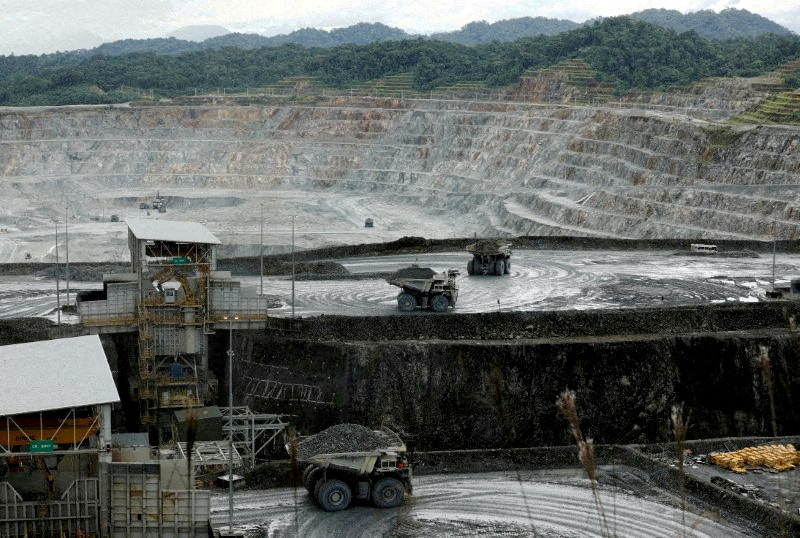[ad_1]

View of the Cobre Panama mine, of Canadian First Quantum Minerals, in Donoso, Panama, December 6, 2022. REUTERS/Aris Martínez/File Photo Acquire Licensing Rights
PANAMA CITY, Nov 28 (Reuters) – Canadian miner First Quantum’s contract to operate a lucrative copper mine in Panama is unconstitutional, Panama’s Supreme Court declared on Tuesday following weeks of protests against the deal.
The ruling could potentially put First Quantum on a long road to an international arbitration, about which the company has already notified the Panama government.
Challenges against the company’s new contract, approved on Oct. 20, piled up in court amid public anger over the deal, which opponents regard as too generous. Reuters reported earlier this month that the court was likely to rule against First Quantum.
“We have decided to unanimously declare unconstitutional the entire law 406 of October 20, 2023,” said Supreme Court President Maria Eugenia Lopez.
The company did not immediately reply to a request for comment.
The contested contract gave First Quantum a 20-year mining right with an option to extend for another 20 years, in return for $375 million in annual revenue to Panama.
The country’s top court ruled against First Quantum’s previous contract in 2017. The decision was upheld in 2021, but the current government allowed the miner to keep operating while both parties negotiated a new deal.
The ruling will have consequences for the copper market, as First Quantum’s Cobre Panama mine accounts for about 1% of global copper production. Benchmark copper on the London Metal Exchange was up 0.1% at $8,374 a metric ton at 1200 GMT after falling by 0.8% on Monday from a two-month peak hit last week.
It is an equally significant business for the Central American nation, with the mine contributing about 5% of Panama’s GDP.
J.P. Morgan warned this month that the odds of Panama losing its investment-grade rating would rise significantly if the contract is revoked.
Protester groups said on social media after the ruling that they will keep demonstrating in the streets until the ruling is published in the country’s official gazette.
Demonstrators have argued the contract terms are too generous to First Quantum and allege corrupt practices in its approval. The company denies this.
Panama, home to some of the world’s newest and biggest untapped resources, has seen unprecedented opposition to mining after First Quantum’s contract was approved by parliament last month.
In response to the protests, Panama’s government enacted a bill in November banning all new mining concessions and extensions, which legal experts have said would prevent the two parties from negotiating a new deal.
Panama’s trade ministry has rejected more than 10 mining concessions and extension requests to abide by the new ban.
Last weekend, the protests against the mine received an endorsement from Hollywood actor Leonardo Di Caprio who shared a video from an environmental group that called for the Supreme Court to cancel the contract given to First Quantum.
Cobre Panama produced 112,734 tonnes of copper in the third quarter and accounted for about 46% of its overall third quarter revenue of $2.02 billion, according to the company.
First Quantum has lost about C$10 billion ($7.36 billion) of its market value since the protests started and has been forced to suspend production.
($1 = 1.3590 Canadian dollars)
Reporting by Elida Moreno
Additional reporting by Valentine Hilaire and Natalia Siniawski;
Writing by Denny Thomas
Editing by Chizu Nomiyama
Our Standards: The Thomson Reuters Trust Principles.
[ad_2]
Source link
